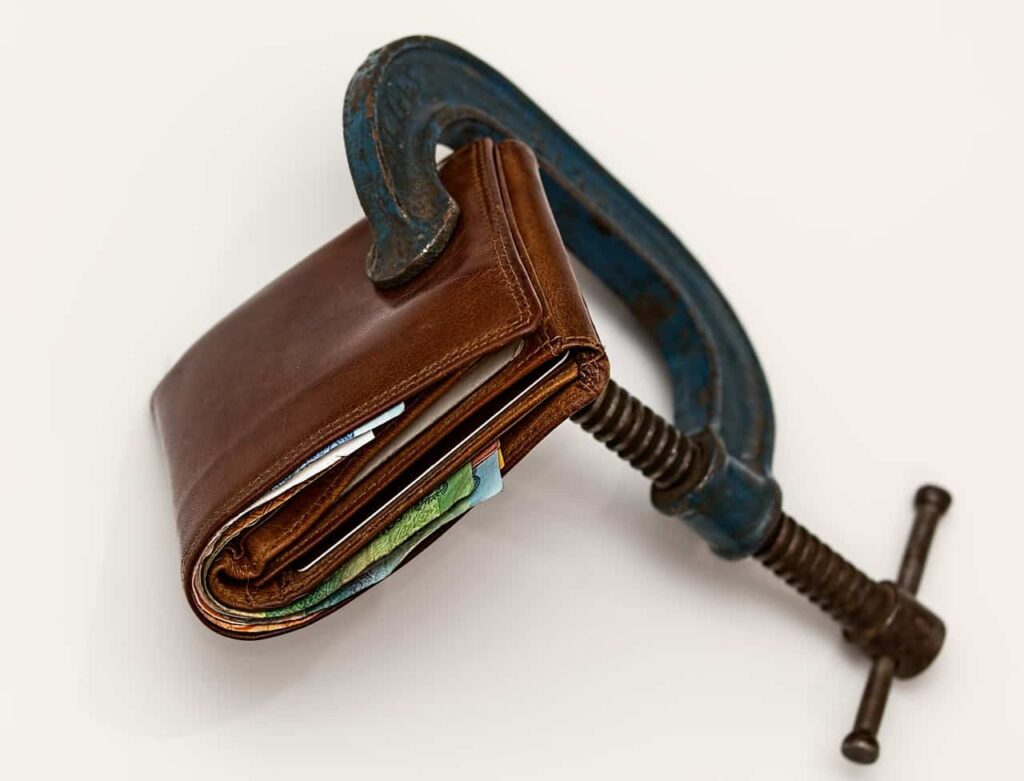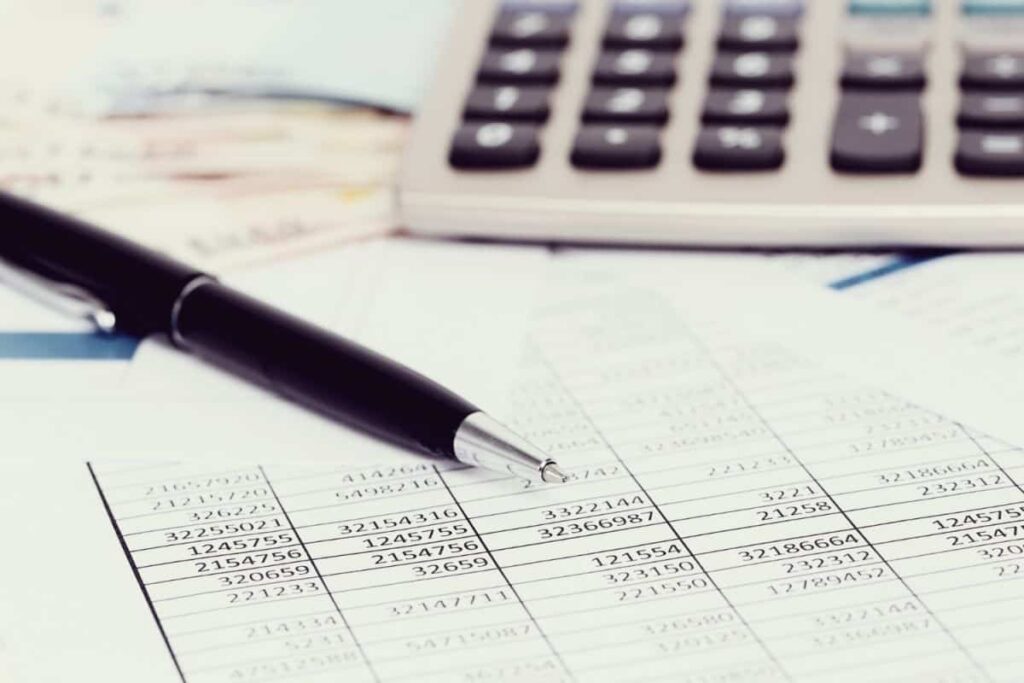Investment Tax Tips For A Bumper Return
Making the most of the money you have is one of the most important things you can do for your finances. This involves taking advantage of every possible opportunity to increase your money through investments. Continue reading if you are interested in learning some investment advice that can assist you in obtaining a high rate of return on your money. We’ll go over some of the most important things you can do to get the most out of your investments and increase your chances of having a positive outcome. Consequently, it is vital that you put these suggestions into action, regardless of whether you are a seasoned investor or just beginning out.
Are you seeking for ways to get the most out of the money you have? Are you interested in finding investing advice that will assist you in achieving a phenomenal return on your money? If yes, continue reading. This blog post will provide you with some tax advice that will assist you in maximizing the returns on your investments. In addition to this, we will give an overview of the taxation structure in Australia and discuss how it impacts investments. Continue reading this article if you would like some helpful knowledge, regardless of whether you are an experienced investor or just beginning out.
There is no way to avoid paying taxes, but there are strategies that can help you minimize the amount you owe. Continue reading if you are looking for investment advice that will assist you in lowering the amount of income that is subject to taxation. We provide all the information you require to maximize the use of your funds and minimize the amount of tax you have to pay. What exactly are you looking forward to? The time to start planning is now!
Advice on Investment Taxes That Will Ensure a Profitable Return
Do you have a property that you intend to rent out as an investment, or do you have a full portfolio of properties that you own? At tax time, you are eligible for a wide variety of deductions from your taxable income because you are a property investor in Australia. If your investment property is negatively geared, this is one of the most significant advantages of being a property investor in Australia.
Find a certified public accountant who focuses on real estate
According to Steve, some of the most typical expenses that can be claimed by investors are the interest you pay on your investment loan, the cost of maintaining the property, the cost of home and contents insurance, the cost of landlords insurance, and the cost of water and council fees (e.g. repairs and renovations).
It seems like there are a lot of things that may be claimed when it comes to taxes, right? However, this may be only the tip of the iceberg since, as Steve explains, if you locate a quality tax agent who specializes in property, “they’ll be able to ensure that you claim everything you possibly can on your investment property.”
“For instance, many developers that are in the process of developing a new property are unaware that, under the margin tax plan, they are eligible to claim GST if they are selling the property at a later date.”
Keep Receipts In Order
In the event that the Internal Revenue Service chooses to investigate your tax return and conduct an audit, be sure to keep all of the relevant receipts in the event that they request them.

It is possible that you will also need to keep other records, such as a logbook of the kilometres travelled to visit your investment property, which is also normally claimable. “You may also be required to keep other records,”
Always remember to file your annual tax return
According to Steve, there are two main reasons why you should always file your taxes on time:
- The deductions you claim for expenses related to your property will result in a lower amount of tax due from you;
- In addition to this, you won’t have to worry about getting in trouble with the tax office or having a “failure to lodge on time penalty” slapped on your wrist.
Think About Making Interest Payments on Your Loan Earlier
If you believe that you might need tax deductions in addition to your normal tax expenses in order to reduce your taxable income, one option available to you is to prepay the interest that will be accrued on your investment loan during the next year.
Steve continues by saying, “You can also prepay the premiums on your home and belongings insurance or landlord’s insurance.”
Request a Schedule of the Depreciation
Steve offers the following advice to real estate investors who are considering the purchase of an existing property or the construction of a new one: “Have a quantity surveyor draw up a depreciation schedule for you, which will outline the various costs that are claimable over the course of a ten year period.”
Spend It!
One last nugget of sound advice concerning finances from Steve:
If you end up getting a large tax refund, you shouldn’t put it in a savings account where the interest rate is less than 4% because it will earn you very little money over time. Put that money to better use by finally completing the home improvements or repairs you’ve been meaning to get around to for a while. Your tenants will have nothing but praise for you, and it will show on your upcoming tax return!
When it comes to investing like a pro in real estate, there is a great deal more to learn. Consequently, you may learn more helpful advice and strategies at our investment hub.
Investment Tax Planning Biggest Mistake Aussies Make On Returns
The tax burden in Australia is quite significant. For instance, according to data provided by the ABS, the typical income earner is responsible for paying an income tax burden of $21,246.
However, despite the significance of paying taxes, you don’t want your annual contribution to the ATO to be more than it absolutely needs to be.
It is simple to err while dealing with taxes due to the complexity of the rules. Sadly, one of the most significant tax blunders that I come across is one that is not readily apparent at first glance. It is common for it to go undetected for years, but if it is found, it can result in losses of tens or hundreds of thousands of dollars or even millions.
This error occurs when you do not plan for your taxes before you invest.
When most people invest, their primary focus is on selecting a profitable investment, but they fail to recognize that this is only one aspect of the overall investment process…
Although the headline return on your investment is significant, it is not the most crucial factor to consider. Instead, you need to keep your attention on the actual “profit” or return that you will obtain from your investment after taxes have been deducted. The two are never identical, and this difference is always quite significant.
In this section, I will discuss the most important aspects of investing that you need to keep in mind in order to get the best return on your money.
Leverage The Variation in Revenue Generated by High and Low Tax Rates
Leveraging the differential between higher and lower tax rates among taxpayers is one strategy that can assist increase your investment return after taxes. This strategy is one of the things that can help enhance your investment return.
This strategy can be effective for married couples who invest jointly as well as for individuals who use alternative “tax entities” such as a trust or investment firm.
When one member of a relationship pays a higher effective tax rate than the other, this presents a unique chance to take advantage of the disparity in tax rates.
This is something that typically takes place when a couple decides to start a family and take some time away from the workforce. However, it can also take place when one member of a couple wants to launch a business, switch career paths, or go on an extended trip.
One Illustration Of Taking Advantage Of Lower Tax Rates
Consider a couple who just delivered their first child and the mother decided to take a leave of absence from her job lasting nine months. Both members of the pair make the average income for Australia, which is $89,128. This would bring the mother’s annual income up to a total of $35,852 if she worked for three months out of the year in addition to receiving government-paid parental leave in the amount of $13,570.
The marginal tax rate for an individual who earns up to $45,000 is 19 percent, which means that an individual is subject to an additional tax liability of 19 cents for every additional dollar of income earned.
Let’s say that Mom and Dad have an investment portfolio that yields a dividend return of $5,000 each year. In this scenario, we’ll suppose that they have this portfolio. If she is the owner of these shares, then she is responsible for reporting the $5,000 in dividend income that she receives on her tax return. At that point, you would be required to make a tax payment on the dividend amount of $950 based on the marginal tax rate of 19%.
If the shares were held in his name instead, he would be required to pay a tax of $1625, which is calculated using his income and the marginal tax rate, which is now 32.5 percent.
The $1625 that Dad paid in taxes related to his investment resulted in a return of $3375 after taxes. Given that Mum owes $950 in taxes, we may deduce that her return on investment was $4,050 after taxes.
The difference between the two is $675, which, when expressed as a percentage, indicates that the investment return earned by the mother is an astounding twenty percent higher than that earned by the father. Your tax savings will also increase in tandem with the growth of both your income and your investments over time.
If you choose to put your money into real estate, you can anticipate a return in the hundreds of thousands or perhaps millions of dollars over the course of your investment (or more). Because of this, finding a means to sell the property (and realize the taxable gain) in a year in which one member of a marriage has a lower taxable income and a lower tax rate might result in significant tax savings.
A word of caution is in order here: careful planning is required before making any investments in order to make the most of the potential benefits, as the difference in marginal tax rates that apply to various people and businesses can frequently shift over time.
You May Also Take Advantage of Increased Tax Rates
When an investment property has a negative gearing ratio, you are eligible to claim a tax deduction for the interest paid on the mortgage as well as any other costs associated with the property. When you have a higher tax rate, you are eligible for a greater tax deduction, which results in a greater amount of tax savings.
Because of this, a person who pays a higher tax rate might take advantage of the possibility to earn a greater benefit from the tax deductions that come from owning a negatively geared property.
On the other hand, you need to be aware that if you sell the property while you still have a high tax rate, you may be subject to additional taxes on the capital gain on the property. This is something that you need to keep in mind.
This demonstrates that there is no technique that is universally applicable, but it also demonstrates that utilizing the laws to your advantage will make a significant impact on the amount of ‘profit’ you obtain from your investment after taking into account taxes.
However, if you want to organize your assets in the manner that is most advantageous to you, there is one more factor that you should take into consideration.
Companies That Invest In Trusts And Other Assets
Utilizing tax structures such as trusts and investment companies is still another strategy that enables you to exert an even greater level of control over the results of the applicable taxes to your investments.

The freedom to split your taxable income and capital gains across a number of different taxpayers is one of the advantages of using trusts. You have the flexibility to switch who you send taxable investment income to on an annual basis, which can result in significant tax savings for you.
Then, at the end of each year, you will be able to choose who to donate taxable income and gains to based on what gives you the best investment outcome after taxes have been paid.
Again, you should be aware that establishing trusts and other tax structures each come with their own unique set of benefits and drawbacks. Initiation fees, ongoing costs for your tax returns, and the purchase of property might all include more complex trade-offs, such as varying land tax and mortgage interest rates.
It Is Not Easy To Change
It is important to be aware that transferring investments from one taxpayer to another (including a company or trust), which is deemed a transfer of ownership, is not an easy thing to do. In all practical respects, the transfer of ownership is the same as selling your investment.
This indicates that tax will be due on any gain, and if you are transferring ownership of a house, you will need to pay stamp duty again – a complete and utter nightmare.
There is also the possibility of extra costs being incurred, such as those related to the preparation of tax returns and legal fees, both of which can further reduce the after-tax return on your investment.
Due to the fact that it is difficult and time-consuming to make adjustments to one’s investment strategy after it has already been implemented, it is imperative that appropriate tax planning decisions be made right from the beginning.
In the end, you need to ensure that the tax benefit you obtain from utilizing a trust outweighs the expenses of any of these trade-offs by comparing them side by side.
However, because of the amount of money you will be able to save on taxes, there is the possibility for advantages each year that could reach into the tens of thousands of dollars, which would far outweigh the initial investment and the recurring expenses.
The decision to use the appropriate entities (at the appropriate times) is a significant one, and it is not one that you should make before being familiar with the rules. It might be difficult to figure out all of this on your own, so if you are considering using trusts or anything similar, do not be hesitant to seek the assistance of an experienced professional.
Find someone who has a successful track record, who works with people who are similar to you, and who is experienced in this kind of job on a regular basis so that you can have faith that they will be able to deliver for you. Doing so will ensure that you receive the correct guidance.
The Wrap
When it comes to tax planning for your investments, there is no one solution that is correct or incorrect; rather, there is only a method that is appropriate for you. You should be aware, however, that it is significant and will play a significant role in determining the success of your investment.
The most important step in putting things in order so that they work out well for you is to plan out your investing strategy right now, as well as how your finances and way of life will change over time. Because of this, you will be able to optimize the tax structure you use now and in the future.
You will be in a position to select excellent investments and structure them in such a way as to give you an excellent return after accounting for taxes.
Advice on Taxes for Investors
A significant number of Australians put their money into the stock market, real estate, and other assets both in their home country and elsewhere. Increasing your wealth requires careful management of the taxes that are owed on your investments.
The capabilities of the ATO in terms of data matching and information gathering are significant and include a wide range of investment revenue streams and capital transactions.
Reporting investment income, particularly income from overseas investments, keeping accurate records, accurately calculating capital gains or losses on disposal, and complying with the many laws and exemptions that are available to investors is more critical than it has ever been.
Talk to a tax agent who is registered with CPA Australia and can provide you with advice on the financial impact your investments will have on your taxes.
Investing Expenses Can Be Deducted
You are eligible to take a deduction for the costs you expended in order to obtain income from investments such as interest, dividends, or other types of investment income. However, you are not eligible to take a deduction for exempt dividends or other types of exempt income.
The following are some examples of investments that qualify for tax breaks:
- costs associated with maintaining an investing account that is used for other reasons;
- Interest paid on money borrowed to purchase shares and other similar investments, from which you generate income that can be taxed as interest or dividends;
- fees for continuous management or retainers, as well as amounts paid for advice relating to shifts in the distribution of investments;
- a share of any additional costs that were incurred in the process of managing your investments, including certain travel expenses, the cost of investing journals, and the cost of borrowing money, if applicable.
If you go to a seminar on investments, the only component of your travel costs you can deduct that is related to earning money from investments is the portion that you spend on the event itself.
Rental Properties
The Australian Taxation Office (ATO) places a consistent emphasis on verifying rental deductions and comparing information provided about income to that obtained from real estate brokers, Stayz, AirBnB, and other service providers.
If you own multiple properties and rent them out, you are required to submit a multi-property rental schedule along with your individual tax returns.
Ensure that claims for interest expenditure are accurately computed, that rental income is fairly distributed among owners, that claims for costs to repair damage and defects that existed at the time of purchase are discounted, and that vacation homes are indeed available for rent.
Property owners who have rental units that are either now being rented or are prepared and offered for rent are eligible to make claims for immediate tax deductions for a variety of expenses. The interest on investment loans, land tax, council and water rates, body corporate costs, repairs and upkeep, and commissions paid to agents are some examples of these types of expenses.
Depreciation is a tax write-off that can be claimed by landlords to compensate for the value loss of equipment including stoves, carpets, and hot-water systems. They may also be eligible to claim a deduction for capital works, which are modifications to the structure of the home that are carried out over a period of time (for example, remodelling a bathroom).
Be aware that in recent years, tax deductions for depreciation of residential real estate properties have been restricted to only include expenditures that were really incurred on the purchase of new products. Landlords are no longer allowed to depreciate assets that were already present in a property at the time it was purchased after May 9, 2017; however, if they purchase a new asset that has not been used or refurbished, they are allowed to depreciate that asset. This change applies to properties that were purchased after May 9, 2017.
Deductions for travel expenses incurred by residential landlords in connection with the inspection, maintenance, or collection of rent for rental property have been eliminated.
COVID-19 has brought to light a variety of tax concerns that landlords and property managers need to take into consideration, including the following:
- deductions for homes occupied by tenants whose income has been negatively impacted by COVID-19 to the extent that they are unable to pay the full amount of their rent or have temporarily stopped paying rent altogether;
- rent reductions for tenants whose income has been negatively impacted by COVID-19, in order to allow those tenants to continue living in the property;
- taxable revenues of past-due rent payments or an amount equivalent to insurance for rent that was not collected;
- deductions of interest accrued on deferred loan repayments for a period covered by COVID-19;
- Cancellation of bookings because of COVID-19 for a home that is typically rented out for short-term lodging but that has also historically been used by the owner for part of his or her own personal needs;
- the private use of a rental property by the owner (for example, as a vacation house) to isolate themselves during COVID-19 and alter the deductions that are available;
- due to the low demand for the property during COVID-19, changes are being made to the advertising and other fees associated with short-term rental properties.
Even while you can still claim deductions for your expenses and the property’s depreciation, you might need to make some modifications if you’ve altered the way in which you use the property.
It is highly recommended that landlords read the information provided by the ATO on holiday houses, renting out part or all of a home, and holiday apartments located within commercial residential properties. The ATO also provides factsheets on the following topics:
- Here are the top ten pieces of advice that will assist landlords and property owners in avoiding typical tax pitfalls;
- The cost of borrowing money.

















